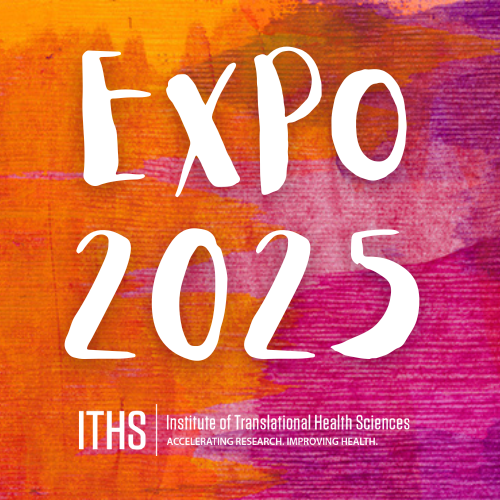 Speaker and Presenter Bios
Speaker and Presenter Bios
Many thanks to our Symposium speakers and Expo poster presenters! Read more about them below.

 Speaker and Presenter Bios
Speaker and Presenter BiosMany thanks to our Symposium speakers and Expo poster presenters! Read more about them below.
Dr. John Amory is the Principal Investigator of ITHS and Associate Dean of Translational Sciences for the University of Washington School of Medicine. He formerly served as the Faculty Co-Director of the ITHS KL2 Program. He is also a Professor of Medicine at the University of Washington Medical Center where he works as an attending physician on the inpatient medicine wards and in the General Internal Medicine and Men’s Health Clinics. Dr. Amory has published more than 175 peer-reviewed papers and chapters in the area of male reproductive health. His work focuses on the development of novel male contraceptives and improved treatments for men with infertility and hypogonadism.
Dr. Amory is a Northwest native who received his undergraduate degree from Harvard University and his MD degree from the University of California, San Francisco, where he also completed his residency in Internal Medicine. Additionally, he has earned both a Master’s degree in Public Health and a Master’s degree in Pharmaceutics from the University of Washington.
He lives in Seattle with his wife, Josie, and sons William and Thomas.

Denise Dillard, PhD, MS, is a Co-Director of IREACH and Professor in the Elson S. Floyd College of Medicine. Denise is Inupiaq Eskimo and grew up in Anchorage, Alaska. She earned her PhD and MS in Counseling Psychology from Colorado State University, as well as BA in Psychology and BA in Sociology from University of Alaska, Fairbanks. Denise’s research focuses on Indigenous health among Alaska Native, American Indian, Native Hawaiian, and Pacific Islander communities using community-based participatory research methods. She has previously served on the Alaska Area Institutional Review Board and as the Alaska Delegate for the National Institutes of Health Tribal Advisory Committee, and presently serves on the National Institute on Drug Abuse American Indian and Alaska Native Collaborative Research Engagement Workgroup. In her free time, Denise enjoys camping, fishing, berry picking, quilting, knitting, crocheting, hot yoga, e-bike riding, watching her son Reid play college baseball, and spending time with family.

Stephanie Lee, MD, MPH, is a Professor at Fred Hutchinson Cancer Center and University of Washington. She holds the David and Patricia Giuliani/Oliver Press Endowed Chair for Cancer Research. She is an NIH-funded clinical investigator whose research interests include health services/outcomes research, quality of life/patient reported outcomes, and allogeneic hematopoietic cell transplantation with a special interest in chronic graft-versus-host disease (GVHD). She is the Principal Investigator of the Chronic GVHD Consortium, a group of US institutions that collaborate to conduct observational and therapeutic trials of chronic GVHD. She has published over 450 articles in peer-reviewed journals and is a member of American Society of Clinical Investigation and the Association of American Physicians. Dr. Lee also holds a number of leadership positions including Associate Director of the Clinical Research Division and Research Director of the Transplant Long-Term Follow-Up Program at Fred Hutchinson and Co-Scientific Director of the Immunobiology and GVHD Working Committees of the Center for International Blood and Marrow Transplant Research. She was the 2020 President of the American Society of Hematology.

Sarah Shannon has served as dean of the Montana State University College of Nursing since 2017. Previously, she served for one year as senior associate dean for academic affairs of Oregon Health & Sciences University and as faculty for 25 years at University of Washington School of Nursing with an adjunct appointment in the School of Medicine Department of Bioethics and Humanities. While in Seattle, Shannon was a clinical ethics consultant at several organizations. She received her B.S. in nursing from University of Arizona and an M. S. and Ph.D. in nursing science from the University of Washington.
Her research focus is on improving communication between health care teams and patients and their families around ethically challenging issues, specifically end-of-life decision-making in the intensive care setting, error disclosure and interprofessional conflict. Shannon has taught clinical and professional ethics for more than 20 years and has been an investigator on multiple National Institutes of Health and Agency for Healthcare Research and Quality-funded grants focused on improving communication between health care teams and patients and their families. She is a frequent speaker on ethics and has served on multiple institutional ethics committees.
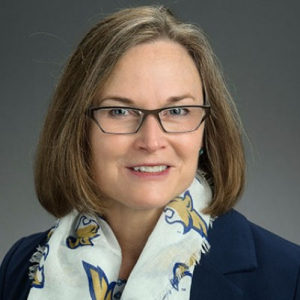
Jodi M. Smith, MD, MPH, is an attending physician at Seattle Children’s Hospital. Dr. Smith is a graduate of McGill University Medical School and Pediatric Residency. She graduated from the Seattle Children’s nephrology fellowship program with a MPH degree in 2002. She is currently a Professor of Pediatrics and an Adjunct Professor of Epidemiology at the University of Washington. She is the Medical Director of the Kidney Transplant Program at Seattle Children’s Hospital and the Medical Director of the Research Integration Hub of the Seattle Children’s Research Institute. She is the current President of the American Society of Pediatric Nephrology. Dr. Smith is on the Board of Directors of the North American Pediatric Renal Trials and Collaborative Studies and is the Senior Staff for Pediatrics for the Scientific Registry of Transplant Recipients. In addition, she serves as an Associate Editor for the journal Pediatric Transplantation. Her research focuses on improving kidney transplant outcomes in the pediatric transplant population through the study of viral complications, development of alloimunity, and organ allocation policy.

Dr. Ho is a professor and presidential entrepreneurial fellow of the University of Washington, and holds appointments at the Fred Hutchinson Cancer Research Center. Professor Ho is the founding Executive Director of the Washington Entrepreneurial Research Evaluation and Commercialization Hub (WE-REACH, a NIH designated National Hub). He has served in a number of leadership roles including Assoc Dean for Research and New Initiatives. His current TLC-ART program, built on a collaborative basic and translational research team composed of scientists, physicians, students and post-doc, focuses on developing targeted, drug-combination and long-acting therapeutics for HIV/AIDS and cancer. Ho is a distinguished leader in pharmaceutical sciences and systems pharmacology with a proven track record of innovation in long-acting and targeted drug combination therapies for AIDS and Cancer. He serves on a number of national and international initiatives relating to Cancer and HIV therapeutics including LEAP leadership team to facilitate development of long-acting therapies for NIH and WHO’s Unitaid. He is an expert on pharmacology and systems approaches to drug targeting and long-acting therapy. His research aims to improve the therapeutic efficacy and safety of viral and cancer drugs, medical diagnostic agents and vaccines. He is an elected member of National Academy of Innovators, elected fellow of the American Association for the Advancement of Science (AAAS) and the American Association of Pharmaceutical Scientists (AAPS). He studies the relationships between drug target distribution and disease development in cancer, AIDS, and neurological disorders. Building on this understanding, he has developed a systems approach to drug delivery and targeting. He is known for his expertise in bio-therapeutics, lipid-drug and -protein interactions, liposomes, drug-combination nanoparticles, pharmacokinetics, and the interplay between tissue targets and drug penetration. His research has led to enhanced HIV, cancer, and pain medication potency and safety. In addition, he has served as an editor of the Journal of Pharmaceutical Sciences and the author of “Biotechnology and Biopharmaceuticals: Transforming Proteins and Genes into Drugs.” He has also received top honors including the Paul Dawson Biotechnology life-time achievement award, Volwiler life-time research achievement award and the AAPS Biotechnology Research achievement, one of the AAPS’s highest recognitions.

Erica Woodahl, PhD, is a Professor in the Department of Biomedical and Pharmaceutical Sciences and Director of the Skaggs Institute for Health Innovation at the University of Montana. Erica Woodahl received a B.S. in Biochemistry at the University of Notre Dame and a Ph.D. from the Department of Pharmaceutics at the University of Washington. She completed a postdoctoral fellowship in clinical pharmacokinetics at the Fred Hutchinson Cancer Research Center in Seattle. She joined the faculty at the University of Montana in 2007 as an Assistant Professor, was promoted to Associate Professor in 2012, and promoted to Professor in 2020. Dr. Woodahl’s research focuses on precision medicine and pharmacogenomics to identify sources of interindividual variability in disease treatment and prevention. Translation of pharmacogenomics into clinical practice requires genetic research with diverse patient populations to accurately predict drug response and toxicity for all people regardless of geographic location, ethnicity, or age. We use community-based participatory research to address complex and important challenges to conducting precision medicine research and aid in the translation of precision medicine research into the clinic.
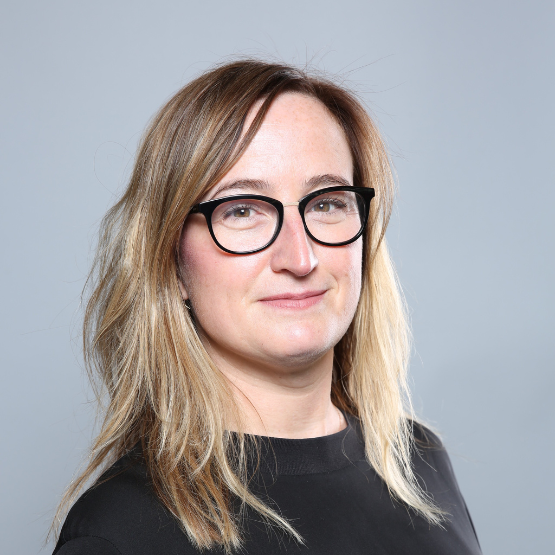
Dr. Farhin Ahmed received her PhD from the University of Rochester. Currently, she is a postdoctoral researcher at the Bloedel Hearing Research Center, University of Washington. Her research interests lie in speech, hearing, and neurodiversity —specifically, how developmental trajectories differ in neurodiverse populations. She uses a combination of neuroimaging and behavioral assessments to answer her research questions.
Listening to the infant brain: Developing brain-based predictive diagnostics for language and learning difficulty in neurodiverse individuals
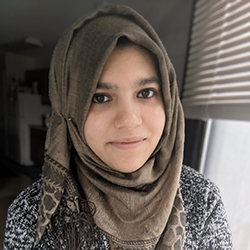
Harsha Amaravadi is a PhD candidate in Health Services Research at the University of Washington, where she studies the impacts of federal and state health policies on health and economic outcomes. Her dissertation focuses on how a recent payment reform in skilled nursing facilities has affected care for people with advanced cancer. Harsha’s broader research interests include health equity, unintended consequences of value-based care, and the role of social determinants in health financing.
Before beginning her PhD, Harsha supported the implementation of federal value-based care initiatives across post-acute, hospital, and outpatient settings. She has contributed to Medicare’s quality measurement and innovation programs, including MIPS and the Center for Medicare and Medicaid Innovation.
Harsha holds an MPH from Tufts University and is currently an AHRQ T32 trainee. Originally from Boston, she enjoys dancing, cooking, and exploring Seattle’s music and park scenes.
Too Sick to be True? Evaluating Problematic Coding Practices in Medicare’s Patient Driven Payment Model

Blair Armistead, PhD, MPH is an Acting Assistant Professor at the University of Washington, Department of Pediatrics and a Principal Investigator at Seattle Children’s Research Institute, Center for Global Infectious Disease Research. Her research focuses on understanding the dynamics of immunity and infection at the maternal-offspring interface, with the ultimate goal of reducing the global burden of infectious disease in pregnancy and early life.
RSV-specific T cells in human milk support the presence of a respiratory-mammary axis of cellular immunity
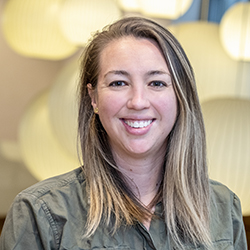
Adam is a physical therapist with residency training in orthopedics and fellowship training in movement systems. Currently, he is a PhD candidate in Rehabilitation Science at the University of Washington School of Medicine. His area of research interest is related to the interaction between physical, psychological, and social factors that influence prognosis for low back pain. He believes that understanding how these factors influence one another can support a holistic approach to optimize the management of those with this condition.
Expectations and Socioeconomic Predictors for the Ability to Exercise Among Patients with Lumbar Spinal Stenosis
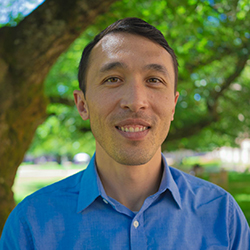
Hannah is a doctoral candidate at the University of Washington, studying Speech and Hearing Sciences in the Neurodevelopmental Diversity Language and Learning Lab. She previously completed her BA at Wellesley College in Cognitive and Linguistic Sciences, and her MS-SLP at Rush University. Hannah also practices as an early intervention SLP, and has previously practiced in the public school setting.
An Expansive Approach to Assessment of Novel Word Acquisition in Autistic Children
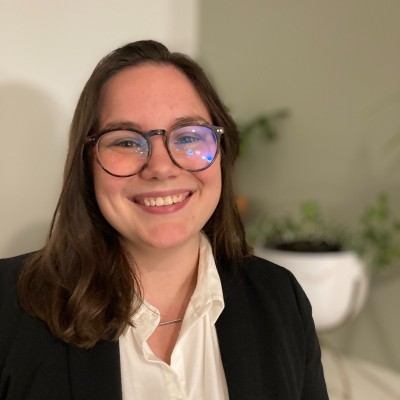
I am a 4th year PhD student in the Graduate Program in Neuroscience at the University of Washington. I am completing my dissertation in the lab of Dr. Susan Ferguson in the Department of Psychiatry and Behavioral Sciences. My research is focused on the interaction of sex and opioids as they pertain to substance use disorder. I am passionate about equal representation of all genders and sexes in biomedical research, as well as accessible science communication.
Female rats show a greater behavioral response to heroin across self administration and locomotor sensitization compared to males
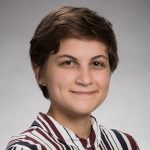
My name is Ryan Brady, and I am third year Ph.D. student in the Chemical Engineering Department. I work under Dr. Cole DeForest and my research focuses on using multiphoton lithography to make next generation tissue models. I am interested in using light to control cell function and fate to make spatially patterned tissue models for disease and tissue modeling.
Modulating 4D Cell Function Via Grayscale Spatiotemporal Biomaterial Customization

Lauren Brown is a 4th year PhD student in lab of Prof. Ashleigh Theberge in the Department of Chemistry at the University of Washington. Lauren grew up in Rutherfordton, North Carolina and received a BS in chemistry and a minor in German from the University of North Carolina at Chapel Hill in 2021. Currently, she is working on developing microfluidic-based 3D cell culture platforms for patterning hydrogels that can be used to model tissue interfaces. She also works on utilizing an at-home blood stabilization device to study wildfire smoke exposure in eastern Washington. In her free time, Lauren enjoys reading fantasy, photography, Carolina basketball, hanging out with her cat, and crocheting.
Suspended and Spatially Controlled Engineered Muscle Tissues using Suspended Tissue Open Microfluidic Patterning to Model Muscular Dystrophy
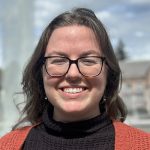
I am a PhD student in Michelle Flenniken’s lab at Montana State University. We study virus-host interactions in the agriculturally important honey bee. My work more specifically focuses on understanding how honey bee antiviral defenses are stimulated and how evolutionarily conserved immune systems may contribute to antiviral defense in currently underappreciated ways.
Elucidating honey bee antiviral defense mechanisms triggered by viral molecular patterns

Aly Edmondson, MFA, is an Instructional Designer on the ITHS Education Team. Aly works across ITHS Cores and external collaborators to create engaging, impactful learning content.
A Customizable Training Curriculum for Developing and Enhancing Clinical Research Professional Expertise and Performance Across a Five State Region

Co-PI on 2024 Early Stage Product Development Award. Senior Research Scientist in Bioengineering at UW.
Project Collaborator: Princess Imoukhuede, PhD. Co-PI on 2024 ESPD Award. Hunter and Dorothy Simpson Endowed Chair, Professor and Chair, Bioengineering at UW.
Diagnosing Severe Preeclampsia: A Blood Test Paving the Way for Prediction

Sophie is a doctoral candidate in the UW Department of Epidemiology. Her research focuses on adolescent mental health, with a particular emphasis on the contextual determinants and long-term cardiometabolic health outcomes of loneliness. Sophie’s long-term career goal is to conduct psychiatric epidemiology research that translates into policy solutions for promoting social connection and mental well-being.
Trends and Societal Correlates of Adolescent Loneliness
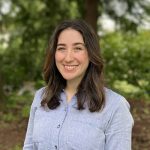
Dr. Michelle Guignet is currently an Acting Assistant Professor at the University of Washington’s Center for Epilepsy Drug Discovery. She received her Ph.D. in Pharmacology and Toxicology from UC Davis before completing her postdoctoral training under the mentorship of Dr. Steve White at UW. With over a decade of experience in preclinical drug discovery, spanning academic and government sectors, she specializes in adapting clinical approaches to preclinical settings to develop novel therapies for drug resistant epilepsy. With support from the KL2 program, her unique translational approach will address critical gaps in understanding pharmacoresistance and associated comorbidities in females with drug-resistant epilepsy. Through novel preclinical platforms, her findings aim to advance prediction and prevention strategies for both men and women living with DRE.
Increased Neuroinflammation Linked with Drug-Resistant Epilepsy: Insights from a Clinically Relevant Rat Model of Temporal Lobe Epilepsy
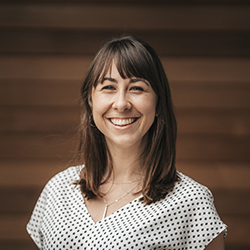
Mia Hoffman is a fourth-year PhD candidate, co-advised in both the Departments of Mechanical Engineering and Rehabilitation Medicine at the University of Washington. She is also a student member of the Center for Research and Education on Accessible Technology and Experiences (CREATE) at the University of Washington. Her research lies at the intersection of biomechanics, accessibility, and rehabilitation medicine, focusing on the design and translation of mobility and accessible play technologies for young children. Mia’s goal in her work is to “just let kids be kids” as they explore the world around them.
Play with mobility aids for young children with Down Syndrome: A pilot study

Kristian Jones’ program of research examines how youth mentoring can be utilized to promote positive outcomes for youth. As part of his commitment to serving young people, families and communities, his scholarship examines how community-based interventions, such as mentoring, meet the unique needs of vulnerable youth to prevent detrimental outcomes and enhance positive youth development. His current research focuses on how community-based youth mentoring programs promote social justice in the communities they serve and prevent firearm violence. Jones’ research is grounded in his passion for equity and inclusion, specifically as it relates to marginalized youth
Been There, Done That, and Now I’m Giving Back: Perspectives from Mentors and Administrators in Community Violence Intervention Programs
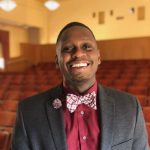
A PhD student at Montana State University investigating honey bee host-pathogen interactions in the context of inapparent, sublethal virus infections.
Flying Under the Radar: Quantifying impacts of inapparent virus infections at the organismal and cellular levels in honey bees
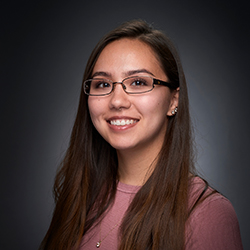
Eleanor Lamont is a PhD candidate at the University of Washington Microbiology Program in David Sherman’s Lab. She received her B.S. in Biology at Western Washington University and her M.S. at the University of Oregon. She now investigates bacterial biomarkers to help predict the likelihood of relapse in TB patients taking antibiotic therapy.
Transcript-Capture sequencing and its application to tuberculosis sputum samples

Aric Lane is staff member of the Institute of Translational Health Sciences as part of the Translational Workforce Development (TWD) and Education Teams. He administers the Clinical and Translational Research Pathway. He organizes annual conferences for research staff, and monthly seminars for career development of research staff and investigators.
Implementation of a Clinical and Translational Research Pathway for Medical Students Across the WWAMI Region

Karolina Maciag MD/PhD is an Acting Instructor at the University of Washington Department of Medicine, Division of Allergy and Infectious Diseases. She completed PhD training in Immunology at Harvard Medical School. At UW, she joined the lab of Dr. Kevin Urdahl at Seattle Children’s Research Institute where she studies immune responses to tuberculosis using the mouse model. Clinically, she completed residency training in Internal Medicine at Johns Hopkins and fellowship in Infectious Diseases at the UW. She serves as an attending physician on the General Infectious Diseases Consult Services at UWMC and Harborview Hospital, and at the TB Clinic of Public Health – Seattle/King County. She is passionate about the development of host-directed therapies to make treatment of tuberculosis safer, faster, and more effective.
Defining cell-extrinsic mechanisms of IFNγ-mediated control of Mtb
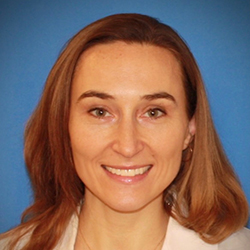
PhD student, Department of Mechanical & Industrial Engineering, Montana State University, Bozeman MT
Inertial Measurement Units to Predict Prosthetic Propulsion and Power
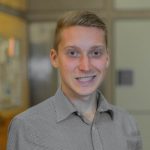
I am a Pediatric Hematologist-Oncologist investigating basic and translational biology in pediatric sarcomas as an independent physician-scientist at the Seattle Children’s Research Institute. My scientific training spans over a decade of published research in the fields of vascularized bone tissue engineering, biomineralization, gene therapy, and spectral ultrasound. I completed my clinical and postdoctoral fellowship in Pediatric Hematology/Oncology at Stanford University. In my fellowship research, I designed an innovative approach to understand the impact of the extracellular matrix on osteosarcoma chemoresistance and identify mechanisms of chemoresistance in a 3D tissue engineered model of osteosarcoma
I am proud to be first faculty in the Ben Towne Center for Childhood Cancer Research to be funded through the Seattle Children’s Research Institute Excellence in Research New Investigator Award. This program supports faculty with backgrounds underrepresented in science, including those with disabilities, a community to which I proudly belong. My career goal is to combine my clinical interests in pediatric sarcomas with my research background in tissue engineering and biomaterials to engineer cures for incurable pediatric cancers.
Matrix Density Induces Chemoresistance within a Tissue-Engineered Model of Osteosarcoma
Aileen Sun is a PhD student in the Department of Bioengineering at the University of Washington, where she is building user-centric diagnostic tools under the mentorship of Prof. Ayokunle Olanrewaju. Her research focuses on the development of capillaric microfluidic immunoassays for acute respiratory distress syndrome (ARDS) subphenotyping, aiming to enable rapid, point-of-care biomarker analysis with minimal instrumentation. She also leads a collaborative project on establishing self-sustaining, long-term hydration for engineered living materials (ELMs). Aileen is committed to translating innovative engineering solutions into real-world products and brings over four years of industry experience commercializing optical-based biosensor technologies. She is a TL1 Translational Research Fellow and has received multiple awards throughout her career. At the 2025 ITHS EXPO, Aileen will present advances in automated diagnostics that could enable precision medicine for patients in critical care conditions. Aileen holds a B.S. in Materials Science and Engineering from National Taiwan University of Science and Technology and an M.S. in Biomedical Engineering from National Tsing Hua University.
Development of an Automated, User-Friendly Microfluidic Immunoassay for Acute Respiratory Distress Syndrome (ARDS) Subphenotyping

Sara Teklehaimanot is a Training Program Specialist on the ITHS Education Team. Sara works with the Director of Education, TL1 and KL2 faculty, other ITHS colleagues, as well as administrators, faculty, instructors, and staff at the University of Washington, Fred Hutchinson Cancer Research Center, and Seattle Children’s to advance excellence in our structured training programs and to implement the ITHS strategic plan to achieve its goals.
Creating a larger, more inclusive cohort to promote scholar engagement through the addition of an invited KL2 Seminar Fellows Program

Jeffrey is a non-Indigenous Ph.D. candidate in the Indigenous & Rural Health Ph.D. program at Montana State University. He has worked as an analyst for Dr. Beth Rink and the tribes at Fort Peck for three years, specializing in mixed methods research grounded in community based participatory research principles. Throughout his Ph.D., Jeffrey has contributed research to the fields of sexual and reproductive health and mental health for Indigenous youth.
“If I didn’t have that, then I really don’t know where I’d be”: Examining the association between depression, well-being, and participation in traditional activities for Indigenous youth and young adults using mixed methods
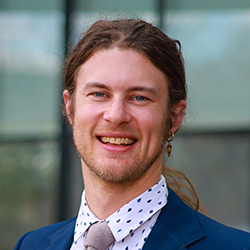
Dr. Dinesh Kumar Verma is a neuroscientist with over 12 years of experience in translational neurobiology, specializing in neurodegeneration, cellular senescence, neuroinflammation, and molecular mechanisms of protein aggregation. Currently serving as Assistant Research Professor at Boise State University, he leads multiple high-impact projects on Parkinson’s disease, focusing on cellular senescence, SUMOylation, and oxidative stress pathways involving in vivo modeling, cellular profiling, and therapeutic target discovery. Dr. Verma has an extensive publication record, successful collaborations across institutional cores, including biostatistics, RNA sequencing and mass spectrometry facilities. A dedicated mentor and educator, he has successfully guided undergraduate and graduate students in research and professional development. His expertise in molecular neuroscience, animal modeling, and program development continues to advance Boise State’s Neuroscience Program through scientific innovation, collaborative leadership, and a commitment to inclusive academic excellence.
Targeting SENP-1 expression or its nuclear translocation mitigates alpha-synuclein preformed fibrils induced protein aggregation
Trenton is a 3rd year PhD Candidate in Dr. Seth Walk’s lab at MSU studying the human gut microbiome. His research focuses on projects ranging from arsenic biotransformation, antibiotic perturbation, and sepsis. He is involved in human clinical trials and is leading mouse model investigations in the Walk Lab.
Mouse Source Matters: Vendor-Specific Microbiomes Influence Arsenic Toxicity



